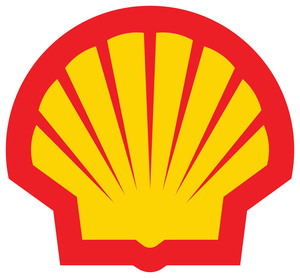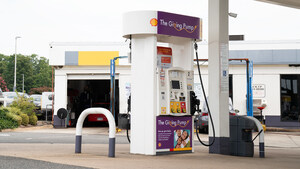Shell Principles Provide Framework, Accountability for Company's Global Tight/Shale Oil and Gas Operations
ASPEN, Colo., June 29, 2011 /PRNewswire/ -- Today, from the 2011 Aspen Ideas Festival, Shell makes its Global Onshore Tight/Shale Oil and Gas Operating Principles available to the public with examples of how the company delivers them. Shell has a rigorous set of five global operating principles that provide a tested framework for protecting water, air, biodiversity, and the communities in which Shell operates.
(Photo: http://photos.prnewswire.com/prnh/20110629/DA28135)
Shell is openly sharing these operating principles to address public concern about tight/shale oil and gas development - especially regarding hydraulic fracturing – encourage feedback and challenge from our stakeholders, and drive continuous improvement. Shell also supports regulation and enforcement that reinforces responsible operating practices and continues to improve the industry's overall performance.
"We understand there is concern around the development of shale gas, and we must give the public more knowledge of how we operate," said Marvin Odum, President, Shell Oil Company. "People have asked the industry for transparency; we have listened and are responding."
Specific on water, hydraulic fracturing has attracted a great deal of attention in recent months. As an example of how we deliver these principles, which are now described online, Shell mandates a stringent well construction standard that focuses on the use of safe drilling and completion processes, including reducing the risk of water contamination.
Further, Shell supports the disclosure of chemicals used in hydraulic fracturing fluids, monitoring of groundwater, and a reduction in the amount of water used in the drilling process. Shell does not fracture wells unless it has pressure tested the wellbore for integrity. And, the company recycles as much water at each project as reasonably practicable. For example, in the Marcellus Shale, Shell recycles almost 100% of produced fluids, substantially reducing our fluid waste and reducing the amount of water volumes needed for hydraulic fracturing.
In the last decade, the industry has discovered an abundance of natural gas. Of the world's 250-year supply of gas estimated by the International Energy Agency (IEA), almost half is contained in shales, tight sandstones, and coal beds. More than one-third of the global gas-production increase, forecasted by the IEA over the next 25 years, could come from these sources.
"If the innumerable benefits of natural gas are to be realized, we must address the concerns of citizens and share the principles that we hold ourselves to at Shell," said Odum. "These principles manage the risk we know exists when producing energy, but just as importantly, they demonstrate our operational integrity and focus on collaboration, underpinning our belief that natural gas can be produced safely and responsibly."
To read the principles fact sheet, visit www.shell.us/naturalgas.
Editor's Notes
- Shell's total North American natural gas position is approximately 3.6 million acres, including operations in North Louisiana, South Texas, Wyoming, and Pennsylvania in the U.S. and Alberta and British Columbia Provinces in Canada.
- In addition to the principles, www.shell.us/naturalgas also features fact sheets, photography, and graphics.
Cautionary note
The companies in which Royal Dutch Shell plc directly and indirectly owns investments are separate entities. In this release "Shell", "Shell group" and "Royal Dutch Shell" are sometimes used for convenience where references are made to Royal Dutch Shell plc and its subsidiaries in general. Likewise, the words "we", "us" and "our" are also used to refer to subsidiaries in general or to those who work for them. These expressions are also used where no useful purpose is served by identifying the particular company or companies. ''Subsidiaries'', "Shell subsidiaries" and "Shell companies" as used in this release refer to companies in which Royal Dutch Shell either directly or indirectly has control, by having either a majority of the voting rights or the right to exercise a controlling influence. The companies in which Shell has significant influence but not control are referred to as "associated companies" or "associates" and companies in which Shell has joint control are referred to as "jointly controlled entities". In this release, associates and jointly controlled entities are also referred to as "equity-accounted investments". The term "Shell interest" is used for convenience to indicate the direct and/or indirect (for example, through our 24% shareholding in Woodside Petroleum Ltd.) ownership interest held by Shell in a venture, partnership or company, after exclusion of all third-party interest.
This release contains forward-looking statements concerning the financial condition, results of operations and businesses of Royal Dutch Shell. All statements other than statements of historical fact are, or may be deemed to be, forward-looking statements. Forward-looking statements are statements of future expectations that are based on management's current expectations and assumptions and involve known and unknown risks and uncertainties that could cause actual results, performance or events to differ materially from those expressed or implied in these statements. Forward-looking statements include, among other things, statements concerning the potential exposure of Royal Dutch Shell to market risks and statements expressing management's expectations, beliefs, estimates, forecasts, projections and assumptions. These forward-looking statements are identified by their use of terms and phrases such as ''anticipate'', ''believe'', ''could'', ''estimate'', ''expect'', ''intend'', ''may'', ''plan'', ''objectives'', ''outlook'', ''probably'', ''project'', ''will'', ''seek'', ''target'', ''risks'', ''goals'', ''should'' and similar terms and phrases. There are a number of factors that could affect the future operations of Royal Dutch Shell and could cause those results to differ materially from those expressed in the forward-looking statements included in this release, including (without limitation): (a) price fluctuations in crude oil and natural gas; (b) changes in demand for the Shell's products; (c) currency fluctuations; (d) drilling and production results; (e) reserve estimates; (f) loss of market share and industry competition; (g) environmental and physical risks; (h) risks associated with the identification of suitable potential acquisition properties and targets, and successful negotiation and completion of such transactions; (i) the risk of doing business in developing countries and countries subject to international sanctions; (j) legislative, fiscal and regulatory developments including potential litigation and regulatory measures as a result of climate changes; (k) economic and financial market conditions in various countries and regions; (l) political risks, including the risks of expropriation and renegotiation of the terms of contracts with governmental entities, delays or advancements in the approval of projects and delays in the reimbursement for shared costs; and (m) changes in trading conditions. All forward-looking statements contained in this release are expressly qualified in their entirety by the cautionary statements contained or referred to in this section. Readers should not place undue reliance on forward-looking statements. Additional factors that may affect future results are contained in Royal Dutch Shell's 20-F for the year ended 31 December, 2010 (available at www.shell.com/investor and www.sec.gov). These factors also should be considered by the reader. Each forward-looking statement speaks only as of the date of this release, 29 June 2011. Neither Royal Dutch Shell nor any of its subsidiaries undertake any obligation to publicly update or revise any forward-looking statement as a result of new information, future events or other information. In light of these risks, results could differ materially from those stated, implied or inferred from the forward-looking statements contained in this release. There can be no assurance that dividend payments will match or exceed those set out in this release in the future, or that they will be made at all.
The United States Securities and Exchange Commission (SEC) permits oil and gas companies, in their filings with the SEC, to disclose only proved reserves that a company has demonstrated by actual production or conclusive formation tests to be economically and legally producible under existing economic and operating conditions. We use certain terms in this release, such as resources and oil in place, that SEC's guidelines strictly prohibit us from including in filings with the SEC. U.S. Investors are urged to consider closely the disclosure in our Form 20-F, File No 1-32575, available on the SEC website www.sec.gov. You can also obtain these forms from the SEC by calling 1-800-SEC-0330.
SOURCE Shell
WANT YOUR COMPANY'S NEWS FEATURED ON PRNEWSWIRE.COM?
Newsrooms &
Influencers
Digital Media
Outlets
Journalists
Opted In






Share this article